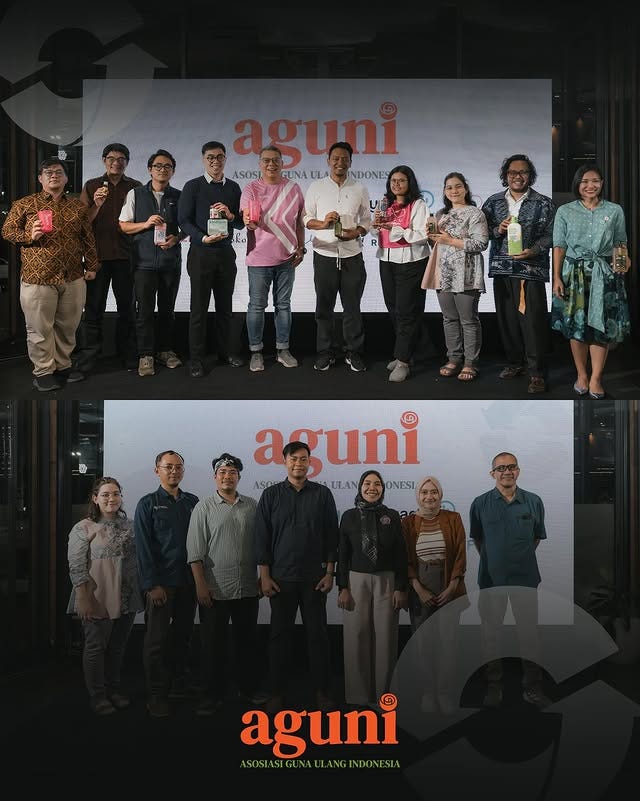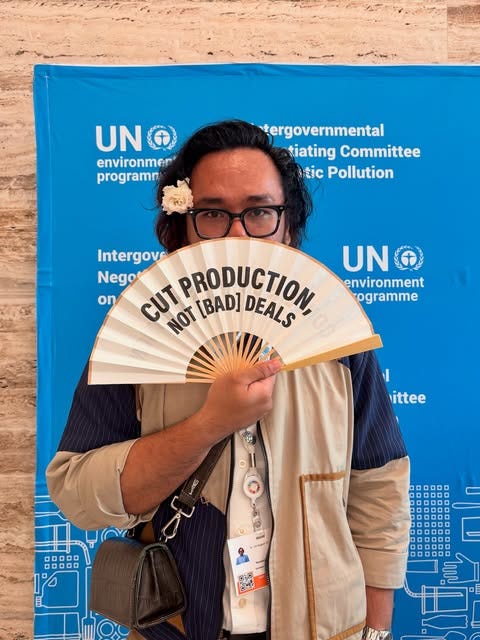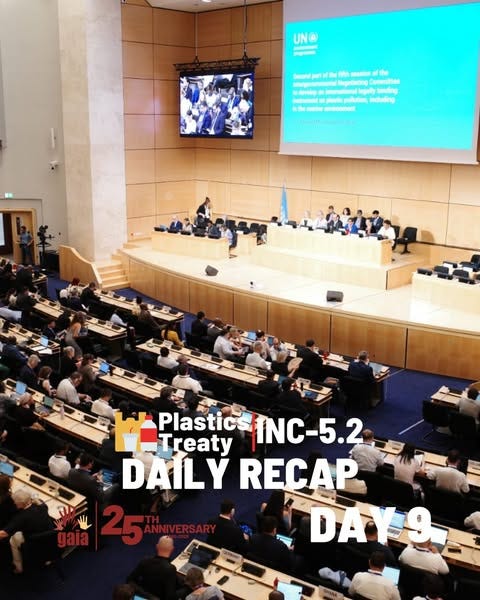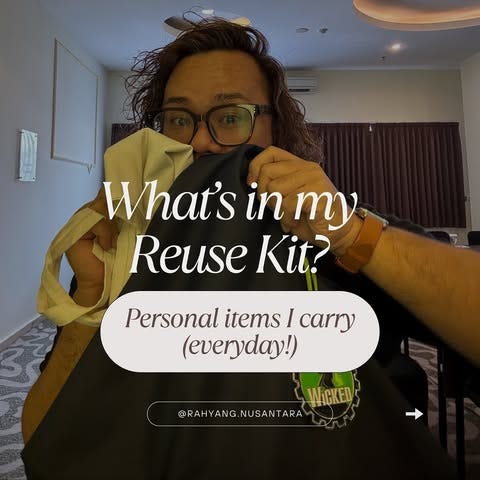♻️ Reuse Rising, Treaty Stalling
Plastics are everywhere and so are the problems they bring.
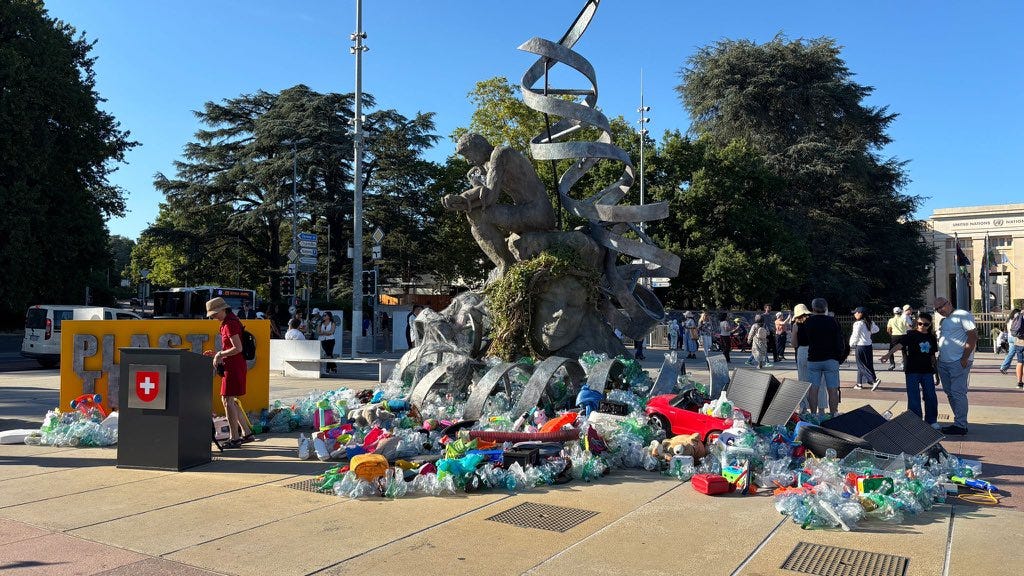
Let’s talk about plastics. 🧴
Last month, two big updates landed — one gave us hope, the other… not so much.
The good news first…
On July 25, Indonesia welcomed a brand-new association: Asosiasi Guna Ulang Indonesia (AGUNI). Their mission? To make reuse the norm.
Think: renting utensils instead of buying disposable ones, refilling household products, or returning cosmetic containers instead of tossing them out. 🌍
According to the Deputy Director at Plasticdiet Indonesia, Rahyang Nusantara, who co-founded AGUNI:
“Real change starts from the ground up. Businesses, communities, and civil society in Indonesia are already proving that reuse and refill systems can work.”
Sounds promising, right?
Now the bad news…
Fast forward less than a month later, on August 15. A global letdown arrived from Geneva, Switzerland. Negotiators at the Global Plastic Treaty (aka INC-5.2) failed to agree on a plan to solve the plastic crisis. Yep, after 11 days of talks… nothing concrete.
Rahyang was there among 600+ observers. His takeaway from Geneva:
“Plastic pollution handling cannot rely only on downstream waste collection and recycling, it must prioritize prevention through reducing production, phasing out single-use plastics, and scaling reuse systems.”
Moreover, he said:
“Without upstream action, we are only managing symptoms, not solving the problem.”
So what happened inside the room?
Indonesian journalist Ahmad Arif said on Thursday (8/21) at the webinar titled “Plastic Wastes Earth and Human”, said the outcome from the INC-5.2 was basically zero progress. This is despite the fact that the UN Environment Assembly has mandated countries to end plastic pollution.
Arif explained that the 184 countries split into two big camps:
Those who want strict limits on plastic production.
And those who don’t.
Where’s Indonesia in all this? Sitting pretty quiet. Why?
Because at home, the government is still planning to ramp up petrochemical and plastic production. Petrochemical companies even get tax holidays — sometimes up to 20 years. 🏭
No wonder Indonesia tends to play it safe, leaning toward production over restrictions.
Meanwhile… according to Arif, the US was working behind the scenes to weaken proposals.
And countries with big petrochemical industries? They pushed for a watered-down draft. The result: a weak text, endless bracketed notes, and way too much lobbying.
As Rahyang put it:
“Responsibility lies not just with powerful countries, but also with governments that chose to stay silent or play safe instead of pushing for ambition.”
Zooming in on Southeast Asia
as per the Kompas journalist, Ahmad Arif.
The Philippines? Loud and clear, pushing for progressive restrictions.
Malaysia? The opposite. They’ve even openly said they don’t support limiting plastic production.
And Indonesia? Like he said — cautious, with eyes on its plastic industry goals.
So… what now?
While world leaders stall, that doesn’t mean we’re powerless. According to Rahyang, individuals can still help shift the norm:
Bring your own: bottles, cups, bags, containers. 👜
Support reuse businesses: shop where refill and return are options. 🔄
Speak up: ask your favorite café or store to cut single-use plastics. 📢
Share the story: spread the word — reuse matters more than “just recycling.” 📣
The treaty may be stuck, but the fight isn’t over.
Change can still start with us.
(RHZ/QOB)





